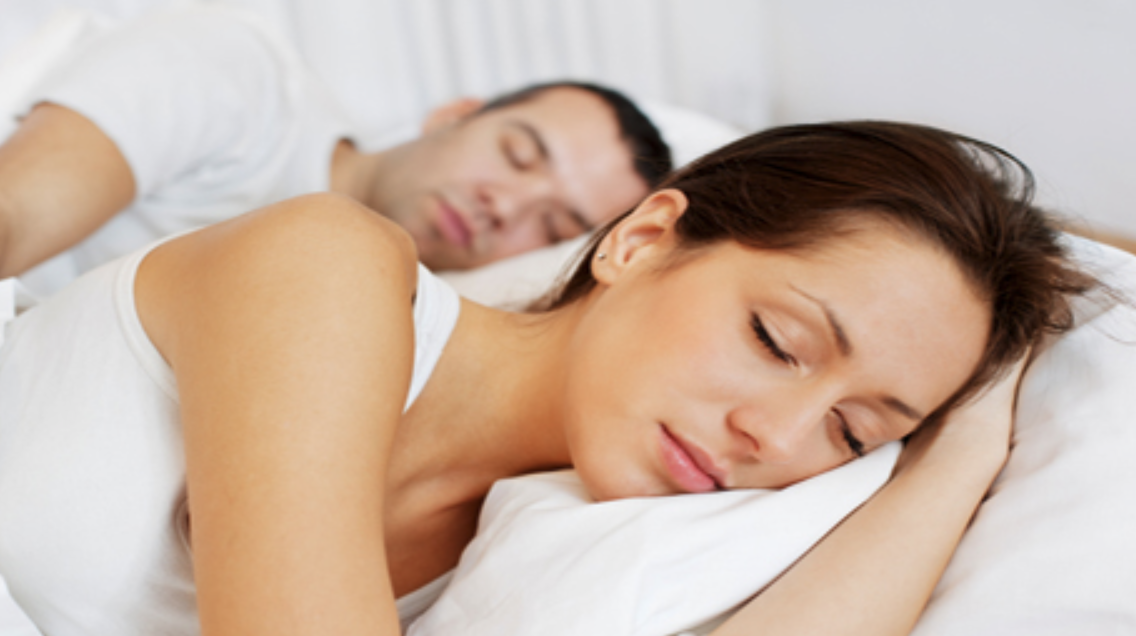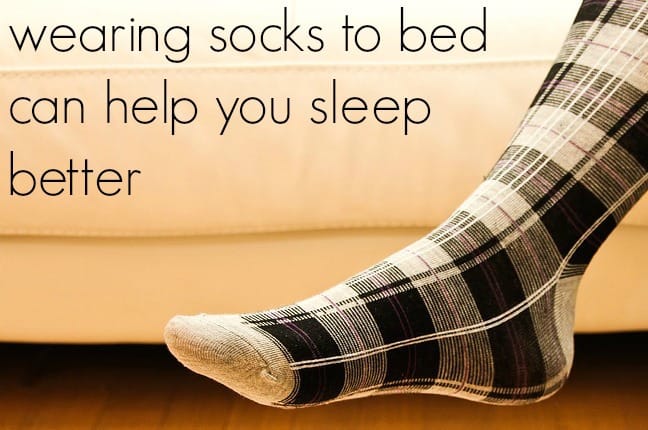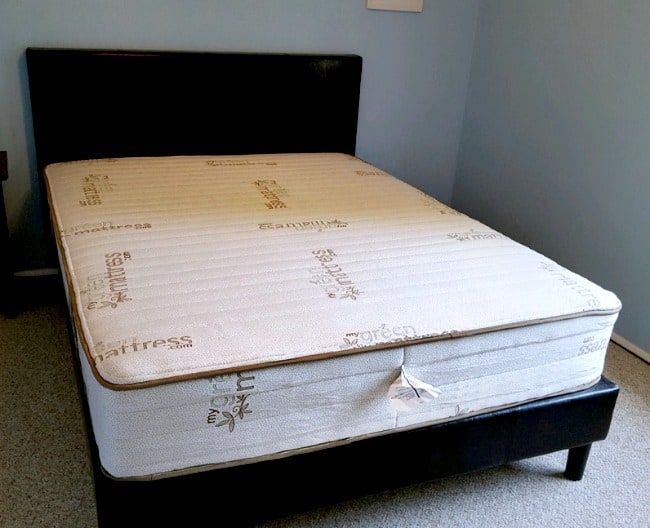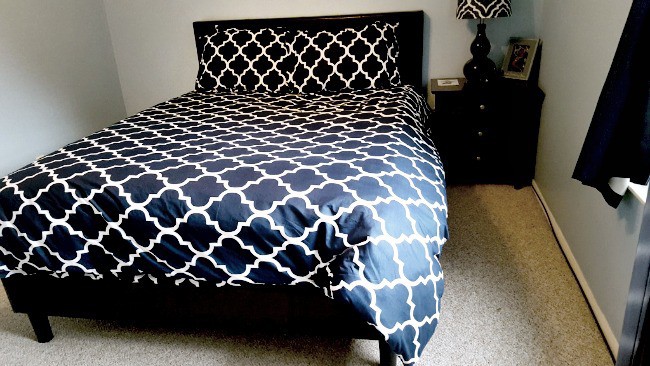Women Need More Sleep Than Men Because Their Brains Work Harder, According To Science

Women need more sleep than men because their brains are more complex… from a new study from England’s Loughborough University.
“For women, poor sleep is strongly associated with high levels of psychological distress and greater feelings of hostility, depression and anger,” professor Jim Horne stated “In contrast, these feelings were not associated with the same degree of sleep disruption in men.”
“Women’s brains are wired differently from men’s and are more complex, so their sleep need will be slightly greater,” he said. “The more of your brain you use during the day, the more of it that needs to recover and, consequently, the more sleep you need.” ~metro.co.uk

Here are 5 ways to get more sleep:
1- Sleep with socks on your feet.
Crazy, right? “Heating cold feet causes vasodilation—dilation of the blood vessels—which may tell the brain that it is bedtime.” according to sleep.org

2- Consistency
This one is hard for me, but if you go to sleep around the same time every night, your body will adjust. Soon, your body will expect it and you will begin to feel sleepy around that time. Wake up around the same time, too.
3- Get a mattress that helps you sleep.
Try out the Natural Escape mattresses from My Green Mattress: (voted Best Mattress in 2016). This hypoallergenic mattress takes the technology from our Pure Echo mattress and incorporates three inches of organic latex over the pocketed coil innerspring. Because of the additional support, it works for me, a side sleeper. It’s a supportive mattress with a plush top feel.


4– Have a banana & milk before bed.
According to health.com: “You may have fond memories of your mother or grandmother making you a glass of warm milk to help you fall asleep. This may not be just an old wives’ tale. Milk contains the amino acid tryptophan, a precursor to the brain chemical serotonin. Some people believe that tryptophan and serotonin might make it easier to sleep. Or maybe a simple glass of milk brings back soothing childhood memories, which help you drift off.”
“Bananas help promote sleep because they contain the natural muscle-relaxants magnesium and potassium, says Gans. They’re also carbs which will help make you sleepy as well. In fact, bananas are a win-win situation in general. “They’re overall health promoters,” says Rosenberg. “We need potassium for cardiovascular health and cognitive functioning.”

5- Read a book!
I find that reading a book before bed helps me to fall asleep. The kids do this, too, for 20 minutes before bed.
Source: https://www.yourmodernfamily.com
Do women need more sleep than men?

A good night’s rest is crucial for your emotional and physical well-being. In fact, one of the main functions of sleep is to allow the brain to recover and repair itself.
And though limited data exists describing the specifics of sleep and sleep disorders in women, research has shown that women may require more sleep than men to recover from the day. Without it, they may be more susceptible to negative health risks.
“Women’s brains are wired differently from men’s, and they are more complex,” says Nagamalar Raju, M.D., an internal medicine physician and sleep medicine specialist at Piedmont. “Women are also multi-taskers, and they do a lot at once. Because they use more of their actual brain, they may need a little bit more sleep than men. It is still debatable, but some experts say that women need twenty more minutes on average than men usually need.”
Sleep and women’s health
Anyone who suffers from sleep deprivation, or a lack of sleep, can be susceptible to negative health consequences. But a 2008 study by Duke University found that women who reported unhealthy sleep had greater psychological distress than men, elevating their risk of heart disease, type 2 diabetes, depression and mood disorders.
“We believe that hormones are likely the culprit behind unhealthy sleep in women, but we don’t know why it results in more serious health consequences in women than in men,” says Dr. Raju.
Women and sleep issues
“Even though most sleep disorders are common in men, women have certain disorders that are more prevalent depending on what period of life they are in,” says Dr. Raju.
Women have higher incidences of insomnia, which is difficulty falling asleep, or staying asleep. They are also more likely to develop restless leg syndrome symptoms during their menstrual cycle, pregnancy or even during the lactation period.
And older women have an even greater risk of developing sleep issues due to hormonal and physiological changes.
Women over the age of 50 have a very high risk of developing sleep apnea. And one in four women over the age of 65, is at risk for sleep apnea.
“After menopause, there’s a significant decrease in the amount of estrogen and progesterone in a woman’s body,” says Dr. Raju. “And that is the primary reason why certain diseases become more prevalent.”
Tips for a good night’s sleep
Good habits are the cornerstone of good sleep, says Dr. Raju. And with fluctuating hormones, women should consider the following tips for a good night’s rest:
- Develop a regular waking and sleeping pattern. Go to bed and wake up at the same time every day.
- Create a relaxing ritual before going to bed. Women often worry about the stresses of the day, which can affect sleep. Try mind exercises or deep breathing techniques before bed to clear your mind.
- Avoid stimulants in the afternoon. Avoid caffeinated beverages or nicotine after 3 p.m. They could keep you awake.
- Consult a physician if you are having trouble sleeping. “I tell my patients, ‘If you have any concern about your sleep both quality and quantity, seek help,’” says Dr. Raju. “Women always think of others first. But the health consequences of unhealthy sleep can be terrible.”
To learn more about treatment for sleep disorders, visit Piedmont Sleep Services.
Need to make an appointment with a Piedmont physician? Save time, book online.
Source: https://www.piedmont.org
DISCLAIMER: THIS WEBSITE DOES NOT PROVIDE MEDICAL ADVICE The information, including but not limited to, text, graphics, images and other material contained on this website are for informational purposes only. The purpose of this website is to promote broad consumer understanding and knowledge of various health topics. It is not intended to be a substitute for professional medical advice, diagnosis or treatment. Always seek the advice of your physician or other qualified health care provider with any questions you may have regarding a medical condition or treatment and before undertaking a new health care regimen, and never disregard professional medical advice or delay in seeking it because of something you have read on this website.
